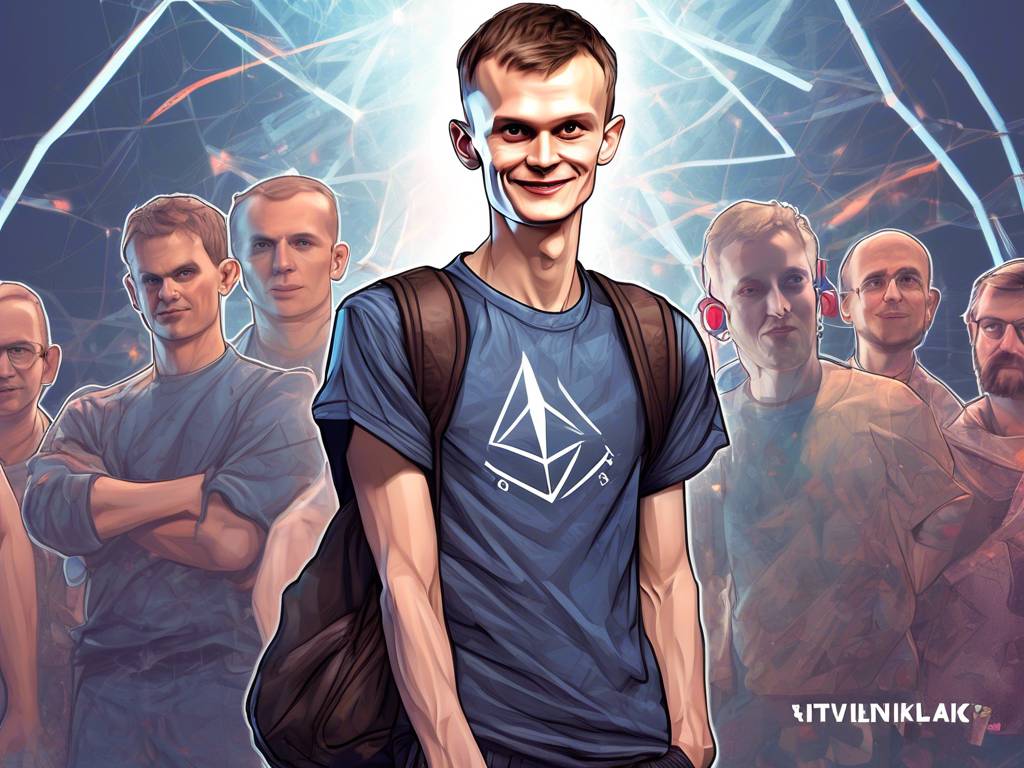Ethereum Co-Founder Vitalik Buterin Discusses Challenges of Proof-of-Stake Mechanism
Ethereum co-founder Vitalik Buterin recently addressed a primary challenge related to Ethereum’s proof-of-stake mechanism, which is the potential for centralization resulting from general staking activity. In his speech at Taipei, Buterin highlighted the presence of “lazy stakers” who possess at least 32 ETH but choose staking pools and liquid staking tools instead of individual staking. He suggested that these individuals could opt for “solo staking” to mitigate the risks associated with centralization.
According to Buterin, even if solo staking becomes easier, many people may still choose not to stake. He emphasized that relying on social pressure and virtue is crucial for solving problems in the network and maintaining its security. However, over-indexing on these factors may not be healthy in the long run.
Lido, the Ethereum liquid staking protocol, currently has a total value locked (TVL) of $34.3 billion. It is the largest validator on the proof-of-stake blockchain Ethereum, controlling 30% of staked ether. Although Lido works with over 35 entities to manage the block production process, other major service providers like Coinbase and Binance also hold significant amounts of ETH stakes.
Potential Solutions for Decentralizing Staking
In an Ethereum research forum post, Barnabé Monnot from the Ethereum Foundation introduced “rainbow staking” as a potential solution to decentralize staking activities. This conceptual framework aims to engage protocol service providers, both solo and professional, in a differentiated menu of protocol services.
Buterin described the essence of rainbow staking as dividing staking into “heavy” and “light” categories. Heavy staking involves slashable actions and requires signing in every slot, while light staking is non-slashable and only requires occasional signing based on a lottery-based system.
Looking towards the future, Buterin raised an important question about how to encourage individuals with large amounts of ETH to participate in staking. He emphasized the need for a realistic answer to prevent these individuals from depositing their funds into centralized entities. Finding a good solution to this challenge would contribute to building a secure and robust staking economic design.
Hot Take: Overcoming Centralization Risks in Ethereum’s Proof-of-Stake Mechanism
Ethereum co-founder Vitalik Buterin recently discussed the potential centralization risks associated with Ethereum’s proof-of-stake mechanism. He highlighted the presence of “lazy stakers” who opt for staking pools and liquid staking tools instead of solo staking, which could lead to centralization. Buterin emphasized the importance of social pressure and virtue in solving network security issues but cautioned against over-indexing on these factors.
The Ethereum liquid staking protocol Lido currently dominates the proof-of-stake blockchain Ethereum with a significant amount of staked ether. However, other major service providers like Coinbase and Binance also control substantial ETH stakes, contributing to centralization concerns.
To address these challenges, Buterin proposed the concept of rainbow staking, which aims to decentralize staking activities by engaging both solo and professional protocol service providers. By dividing staking into heavy and light categories, this framework offers different levels of participation based on slashable and non-slashable actions.
However, the key question remains: How can individuals with large amounts of ETH be encouraged to participate in staking? Buterin emphasized the need for a realistic answer to prevent these individuals from depositing their funds into centralized entities. Finding a suitable solution will be crucial in building a secure and robust staking economic design.
Sources:
Theon Barrett shines as a distinguished crypto analyst, accomplished researcher, and skilled editor, making significant strides in the field of cryptocurrency. With an astute analytical approach, Theon brings clarity to intricate crypto landscapes, offering insights that resonate with a broad audience. His research prowess goes hand in hand with his editorial finesse, allowing him to distill complex information into accessible formats.

